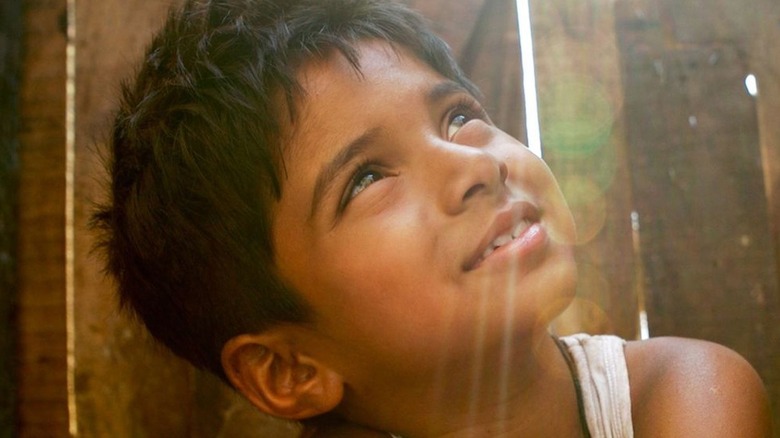
Since beginning his directorial career in the early '90s, Danny Boyle has become one of the most famous and reliable filmmakers of his generation. Although some of his most successful films have a clear sentimental streak, plucking the heartstrings of the audience like a well-tuned guitar, his work has been surprisingly varied. And what's incredibly striking when looking at Boyle's filmography is that there's not a huge amount of daylight between his worst films and his best films. To be honest, they're all pretty good!
So really, when we look at Boyle's movies, it's not so much a question of if they're high quality or low quality, but to what extent they were able to find an audience that would connect with their unique charms. And while not everyone may vibe with his particular style as a director, Boyle has tried his hand at enough different genres that there should be something for everyone -- he's one of the rare directors who doesn't have many stinkers hiding in his catalog.
Trance
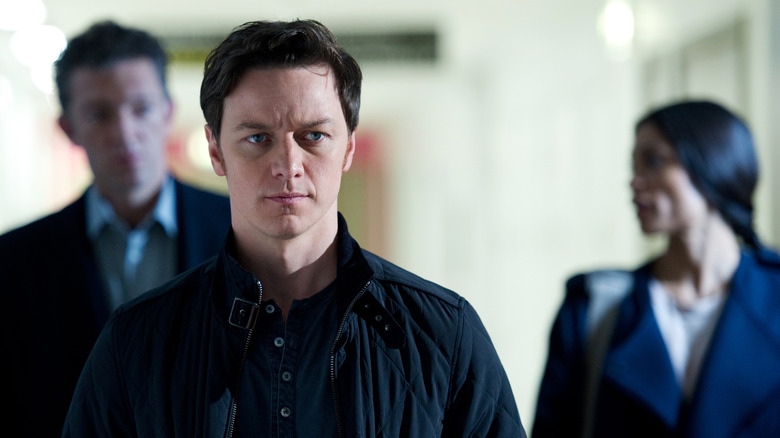
From a creative perspective, "Trance" represented a return to familiar territory, the fifth collaboration between Danny Boyle and screenwriter John Hodge, who worked on many of his early films and was responsible for developing this script after it was started by Joe Ahearne. "Trance" stars James McAvoy as an art auctioneer caught up in a heist, after a gambling problem induces him to help gangsters steal a very valuable piece of art to pay off some of his debts.
But not everything is quite as it seems. Hypnotism plays an outsized role in the narrative, and as "Trance" goes on, we begin to wonder exactly what the reality of the situation is (James McAvoy's character is quite curious as well). "Trance" feels like the sort of trippy psychological thriller that performed really well in the early '00s, but it's damaged by the fact that it came out just a few years too late to capitalize on the popularity of the subgenre.
Millions
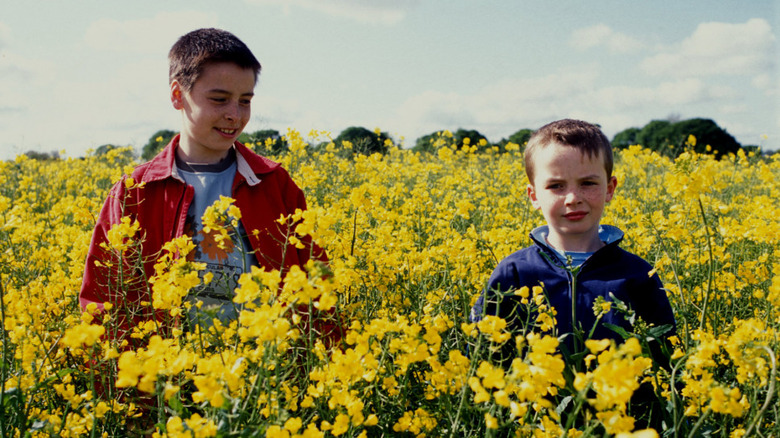
There are some Danny Boyle films that have an unabashedly sunny perspective, but "Millions" is the only one that's actually meant to be a family film. It centers around a young boy who is recovering from the recent death of his mother, and who finds a bag of money as he's playing near some local train tracks. He doesn't quite know what to do with the cash, but while his older brother wants to spend it on himself, he is determined to put it to charitable use.
"Millions" features appealingly naturalistic performances from Alex Etal and Lewis Owen McGibbon, who both feel like authentic children rather than self-aware child actors. And although the story is uplifting, it manages to avoid feeling cloyingly sweet, because it has just enough personality and quirkiness to keep it grounded. "Millions" reflects a genre that Danny Boyle should revisit more -- he clearly enjoys embracing its optimistic and heartwarming tone.
127 Hours
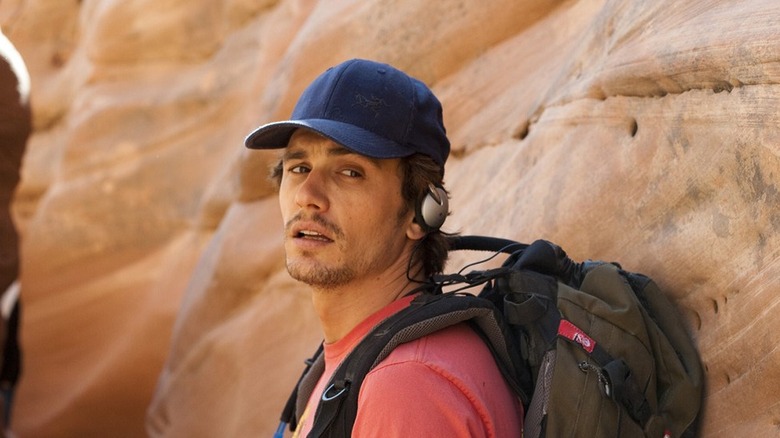
It's rare that Danny Boyle ventures into "inspiring true story" territory -- in fact, "127 Hours" may be his only real entry in that genre. It stars James Franco as Aron Ralston, an avid mountaineer who was pinned between a boulder and a rock wall, putting his very survival in jeopardy. After evaluating all his options, he was faced with a grim, "Saw"-like choice: to cut off his own arm, and potentially live to tell the tale, or remain stuck, alone, and slowly starve to death.
Aron's story garnered massive media attention in 2003, and "127 Hours" is based on the memoir he wrote about his experiences during that disastrous expedition. Despite its gruesome content (the amputation scene is shown in all it's disgusting glory, and some audience members were reported to have fainted during the film's festival premiere), "127 Hours" was well-regarded, receiving six Oscar nominations, including Best Picture and Best Actor for James Franco.
Steve Jobs
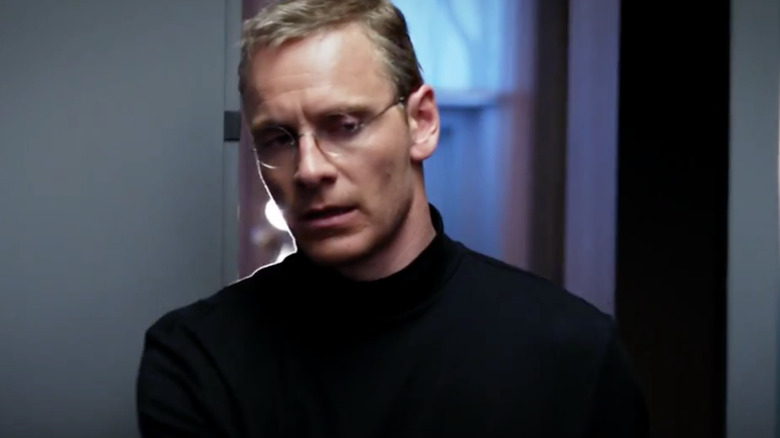
Although Danny Boyle occasionally draws from real life for inspiration, "Steve Jobs" is perhaps his first proper, traditional biopic (yes, "127 Hours" could technically be considered a biopic, but it's much more about the hellish experience Aron Ralston goes through than him as a person). Here, Boyle tackles the extraordinary and controversial life of Steve Jobs, the co-founder and creative visionary behind Apple who died from cancer in 2011.
Although "Steve Jobs" is conventional and a bit dull at times, it succeeds on the power of Michael Fassbender as Jobs and Kate Winslet as marketing executive Joanna Hoffman, both of whom received Oscar nominations for their work here. Despite this, "Steve Jobs" was criticized for its historical inaccuracies and underperformed at the box office, although it did prove to be the superior Jobs biopic, beating out "Jobs," which was released two years earlier and starred Ashton Kutcher.
Sunshine
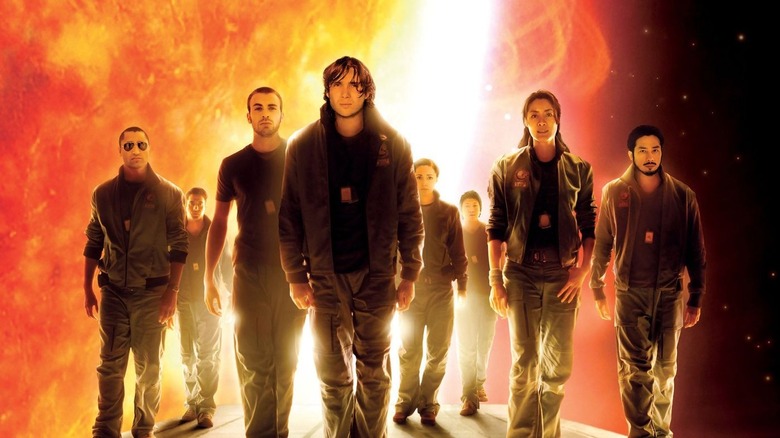
On the surface, "Sunshine" has a lot going for it. There's an excellent cast on board, featuring Cillian Murphy, Rose Byrne, Chris Evans, Benedict Wong, and Michelle Yeoh. Danny Boyle was reported to be creatively inspired by cinematic space classics, including "2001: A Space Odyssey," "Alien," and "Solaris," amongst others, the references to which should have built up a healthy sense of anticipation for film enthusiasts.
But for whatever reason, "Sunshine" failed to connect with audiences, and although it received perfectly acceptable reviews from critics, it was largely regarded as a box office disappointment. Perhaps this psychological space thriller about a crew of astronauts on a desperate mission to stop the Sun from dying out wasn't grounded enough to win over moviegoers. After making "Sunshine," Danny Boyle swore off science fiction for good, a vow that he has stuck to in the 14 years since this film's release.
The Beach
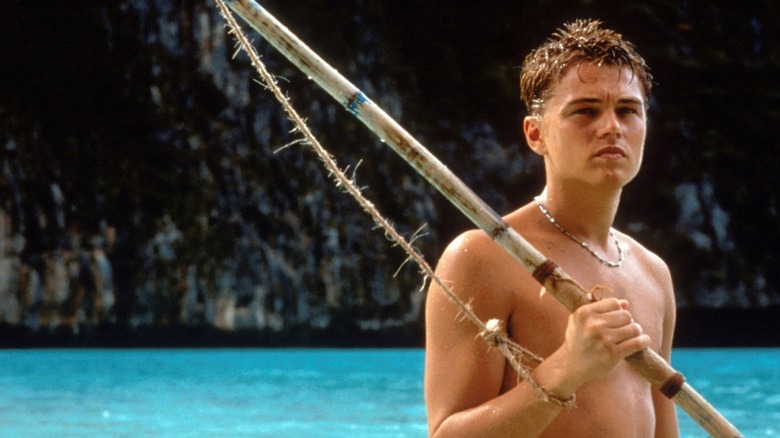
"The Beach" is one of the most underrated Leonardo DiCaprio films ever made. It's treated like it's absolutely terrible, and it's not; it's just not all that amazing. But we also have to acknowledge that "The Beach" suffered from the expectations it faced. Danny Boyle was an acclaimed indie director in the late '90s, and after "Titanic" and "Romeo + Juliet," DiCaprio was one of the most in-demand young actors in all of cinematic history. It was expected that the die-hard fans would flock to cinemas to see their beloved Leo, easily earning back the money spent on this film.
But "The Beach" wasn't quite what they, or other audiences, expected. A troubled production that was criticized for the damage it did to the Thai beach used as a primary location, 20th Century Fox was dragged through a lengthy court case that left a bad taste in pretty much everyone's mouth. But it's not all bad. The cinematography is gorgeous, and even when he's not at his best, Leo is one of the most charismatic actors of his generation. Maybe "The Beach" is ripe for a critical reevaluation?
T2 Trainspotting
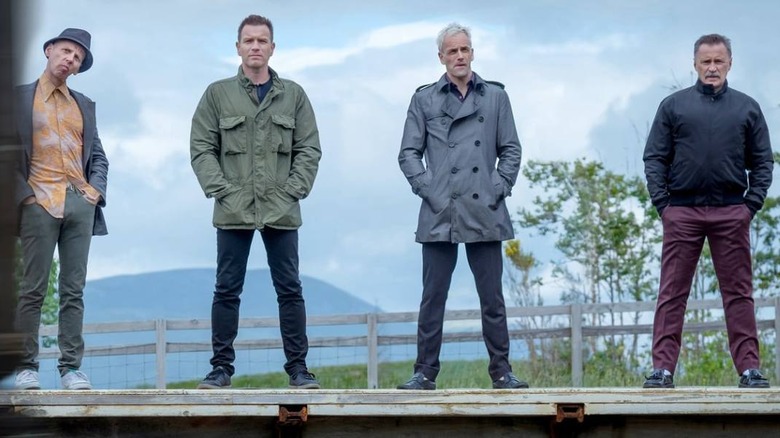
What happens when you revisit an older group of characters so closely identified with the sort of drug-induced frenzy and anti-establishment attitudes of youth? Is it just like a really depressing high school reunion, where the coolest kids you knew have morphed into a bunch of health-conscious, chartered accountants? "T2 Trainspotting" reunites the cast of "Trainspotting" 21 years after the initial film was released, with the original characters now in their 40s. Did they choose life, as Renton famously says in "Trainspotting," or have they merely wasted theirs?
"T2 Trainspotting" comes with a sense of melancholy, as the characters reflect on the past 20 years of their lives, but also the same energetic defiance that made audiences connect with the first film back in the '90s. If nothing else, it's a joy to see the actors, many of whom have since become household names, return to the characters that launched their careers.
Yesterday
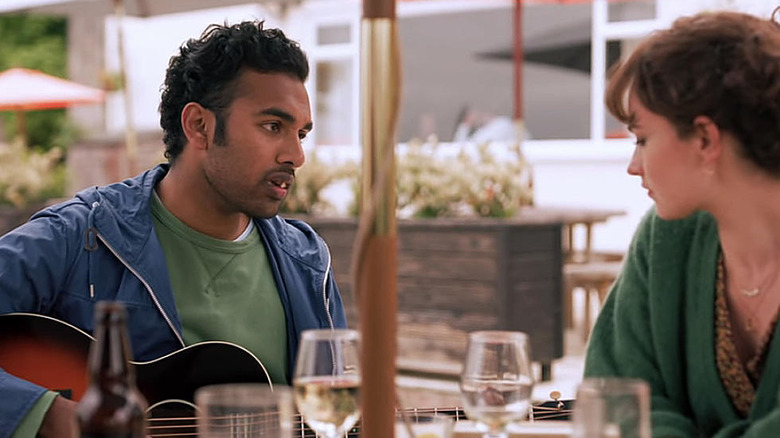
"Yesterday" explores the worst nightmare of every baby boomer: What if the Beatles never existed? Would we be as contemptuous of modern music without the Beatles serving as a benchmark to measure all other bands against?
Slightly eye-rolling deification of the Beatles aside, "Yesterday" does manage to be a very sweet, feel-good movie. When a struggling musician (Himesh Patel) is knocked into a coma after a bike accident, he wakes up to discover the world is much the same as he left it, except in one important respect: No one has ever heard of the Beatles. In fact, it doesn't seem like they ever even existed. But all of their songs still exist in the man's head, which leads to an interesting ethical conundrum: If he were to claim them as his own creations, would that be, strictly speaking, stealing?
"Yesterday" is Danny Boyle at his most sentimental, and while it may be a little much for more cynical audiences, it's undeniably a crowd pleaser.
28 Days Later
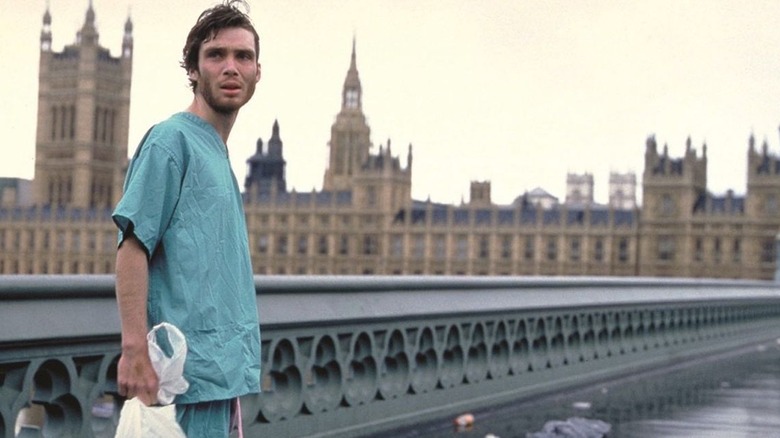
Up until this point in his career, Danny Boyle hadn't really gone anywhere near a horror film. So, it was with a certain amount of surprise that he chose to tackle zombies with "28 Days Later." The movie stars Cillian Murphy as a young man who wakes up from a coma to a post-apocalyptic nightmare, in which a highly contagious virus has infected most of English society, reducing them to rage-filled zombies (the first of two times, interestingly enough, that Boyle would use the coma as a device to introduce a character to a changed world).
"28 Days Later" is an emotionally charged horror film, as survivors of the epidemic struggle to both stay alive and cling to some vestiges of the society that has slipped away. Part of what makes "28 Days Later" so frightening is that it's grounded in reality, reflecting a chilling depiction of a scenario that we can all-too-easily imagine happening under certain circumstances.
A Life Less Ordinary
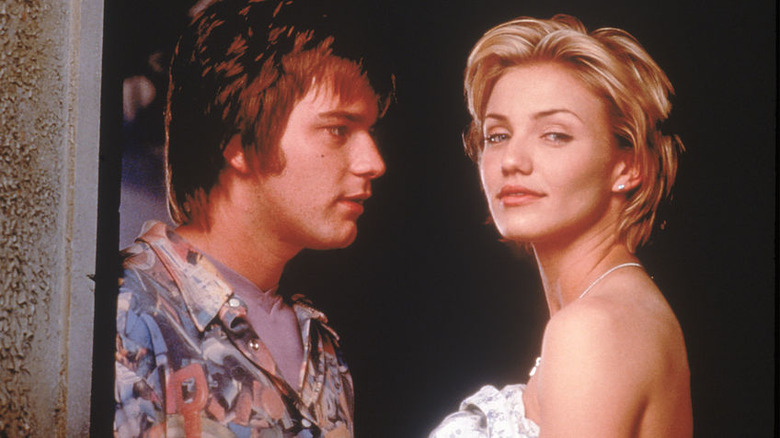
We'll just say it straight out: No one appreciated the vibe that "A Life Less Ordinary" was going for when it first came out. Watch it now and it's impossible not to be struck by how bold and beguilingly off-kilter it all is, and you'll wonder why it never got the credit it so clearly deserves. Ewan McGregor stars as a laid-off janitor who essentially moonwalks into kidnapping his boss' spoiled daughter, played by Cameron Diaz. It's not something that he really intends to happen, but hey, what's done is done. But that's not all: Holly Hunter and Delroy Lindo also appear as two angels who are tasked with making the couple fall in love. Listen to that plot synopsis and explain how that could not be one of the greatest movies ever made.
"A Life Less Ordinary" has such a pitch-black sense of humor that makes it really tough not to love. Honestly, it deserves a pretty lofty place on this list by virtue of the incredible karaoke musical number alone, which has McGregor showing off his pipes a full four years before "Moulin Rouge!"
Slumdog Millionaire
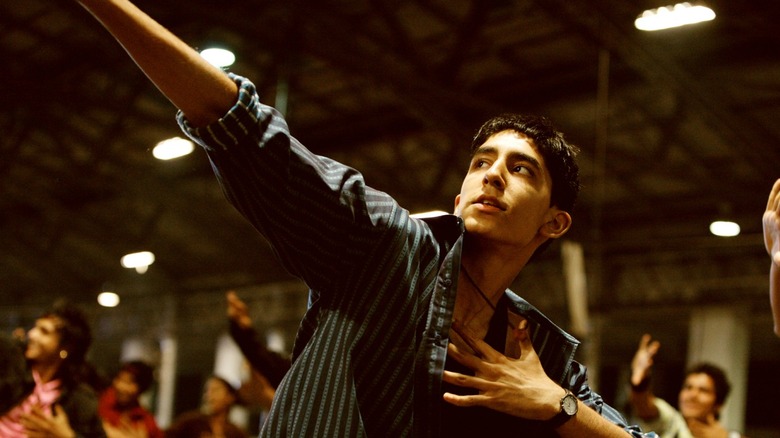
"Slumdog Millionaire" was the sleeper hit that no one saw coming. Based on the novel "Q & A" by Viras Swarup, it tells the life story of Jamal (Dev Patel, in a star-making performance) through one extraordinary game of the Indian version of "Who Wants to Be a Millionaire?" Jamal's success on the show seems to be fated, as he learns the answers not through advanced education, but a series of life experiences that has given him the exact knowledge that will serve him best in this endeavor.
Jamal's life is one of pain, fear, and danger, as he grows up a child of the slums in Mumbai, separated from his mother and desperately trying to evade opportunistic predators eager to take advantage of him. Despite this, there is a sense of hope in the form of Latika (Freida Pinto), the girl that Jamal has loved since childhood. It's a vivid, heartwarming story that captured the hearts of international audiences, and was rewarded with eight Academy Awards, including best picture and best director for Danny Boyle.
Shallow Grave
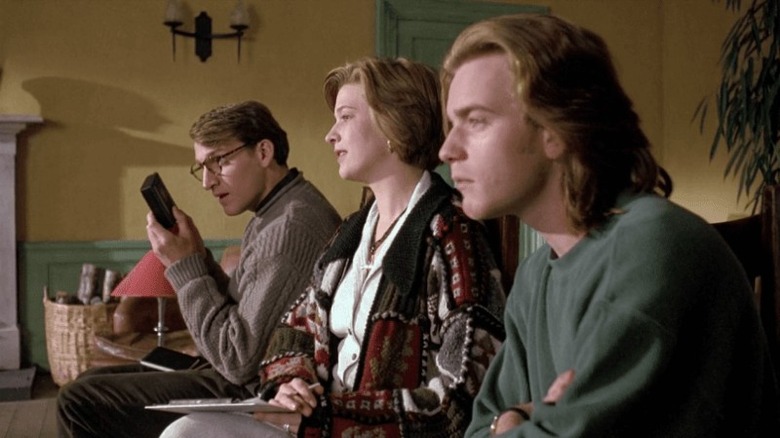
"Shallow Grave" is the first film that Danny Boyle ever directed, and in terms of pure nerve he's rarely matched its quality. It stars Ewan McGregor, Christopher Eccleston, and Kerry Fox as a trio of roommates on the hunt for a new person to share their apartment. However, when their new roommate unexpectedly dies, leaving behind a large sum of money in the form of a suitcase full of cash, things become a bit more complicated. What to do with the money? And, perhaps more pressingly, what to do with the body?
"Shallow Grave" fits in perfectly with the violent dark comedies that were increasingly popular in the early '90s, and kickstarted Danny Boyle's career. Indeed, Boyle would forge a path through English cinema on the merits of this film, his star rising parallel to those of his two lead actors, McGregor and Eccleston, both of whom he would work with again in later years.
Trainspotting
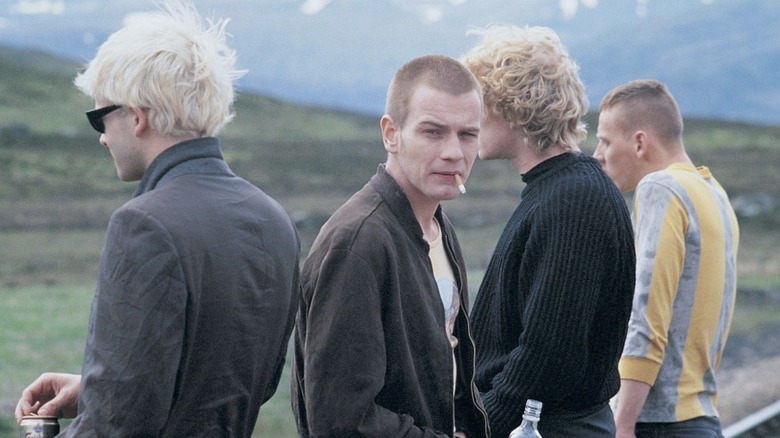
"Shallow Grave" is the film that started Danny Boyle's career, but "Trainspotting" is what really cemented his reputation as a director to watch throughout the late '90s and early '00s. It's the story of a group of unapologetic junkies in Edinburgh, led by a cast of truly remarkable actors who would go on to become some of the biggest stars of their day. "Trainspotting" is bold, inventive, and even grotesque in its depiction of their lives.
Throughout the entire production, there's a vitality to "Trainspotting," a youthful energy that stands in defiance of not just traditional filmmaking but traditional society in general. Renton (Ewan McGregor) has a famous monologue that offers up a pretty succinct rejection of the sort of capitalist, boring, middle-class life that he is expected to lead, an existence that he considers nothing less than soul-crushing. Still, when offered the choice between that and the fleeting ecstasy and brutal emptiness of heroin addiction, it's not quite so easy to choose. "Trainspotting" is a seminal moment in British cinema, and may just be Boyle's masterpiece.
Read this next: Every Christopher Nolan Film Ranked Worst To Best
The post Every Danny Boyle Film Ranked from Worst to Best appeared first on /Film.
0 Commentaires